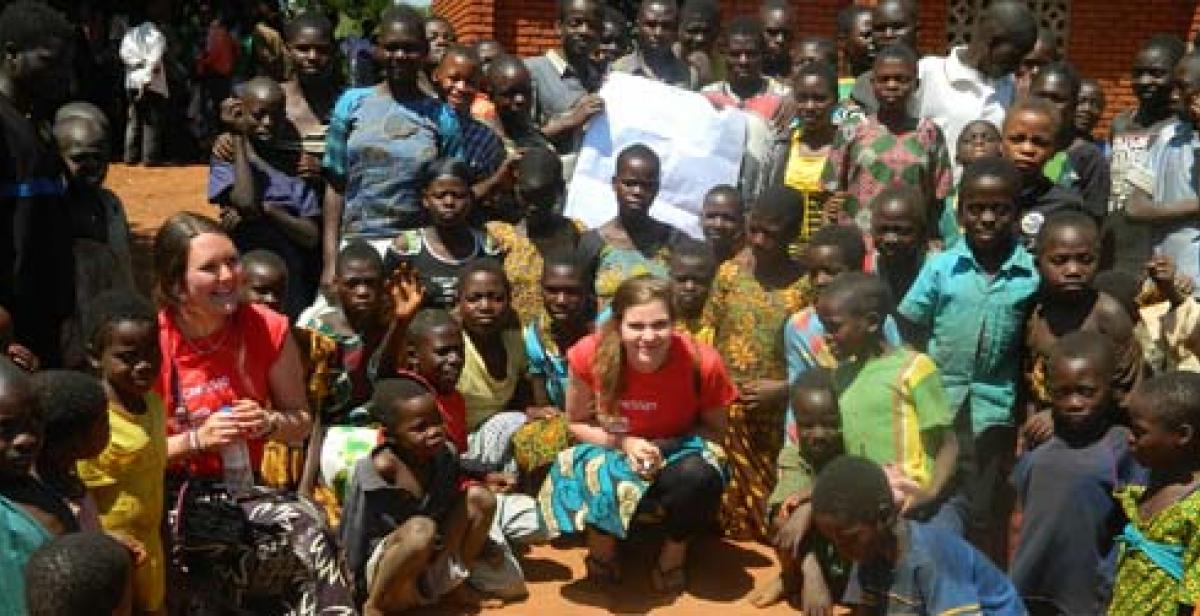‘We are happy when these things happen to us’, were the words of the women’s song that broke spontaneously into our planning session in Phalazi village. Despite the formality brought to our sessions here by the presence of chiefs (or ‘traditional authorities’), we have found people here more than willing to find time to express themselves in less rigid ways such as this.
Our group of volunteers, 5 from the UK and 5 from Malawi, is working with a partner organisation of Progressio, Arise and Shine, in the villages of Phalazi and Katengeza just outside the capital city, Lilongwe. We are the first ICS group to work with these communities, so our first activities here – after mastering the lengthy but charming Malawian introductions – have been assessing the needs of these communities and planning how we can be involved in realising their vision for the future.
Phalazi and Katengeza are subsistence farming communities situated in the central region of Malawi. They appeared very different to us on first sight but we soon discovered that they face essentially the same problem: insecure livelihoods. Phalazi is surrounded by fields of maize, which provides one of the main staple foods in Malawi, ‘nsima’, eaten in large quantities with almost every meal. The verdict on this ever-present of Malawian meals amongst the UK volunteers has been mixed – but I am an enthusiastic convert! However, we saw many people in Phalazi who had prematurely harvested their maize and were drying it in the sun – a sign that they are struggling to produce enough to last them between the yearly crop cycles. In Katengeza the community finds a large part of its income from livestock and brick-making, an environmentally unsustainable practice which damages the quality of the soil they need to grow their food on.
The emphasis in these planning stages has been put on building our work around the needs identified by the communities themselves– it is development dictated from the bottom up. Assembled in the church, we gathered information from the people in the villages by asking them to draw maps of their area as it stands and as they would like to see it in five years. From this information, we formed an action plan together with the communities about how their ambitious goals can be achieved.
During the exercise, I was struck by the clarity of the people’s vision for the future and the strength of their desire to achieve it. In both villages a consensus easily emerged about what the people wanted to achieve. This can be seen in the ‘Masomphenya’ or ‘vision statement’ written by the people of Katengeza: “By 2018, we want to have: self-reliance, food security, good education, good houses, healthy people, enough livestock, good modes of transportation, safe drinking water and practising family planning and conserving natural resources”.
Anyone who has questioned the validity of concepts like development and poverty – myself included – would be by forced to think again by how clear the people in Katengeza and Phalazi are about the problems that exist and how they want to overcome them. It is obvious that poverty does exist for the people we met: they have basic needs which are not currently being met, but they have no doubts about wanting to develop their ability to meet these needs. It was inspiring for us to see the communities’ enthusiasm, and we were touched by the warmth and openness they extended towards us. I left feeling like such an act of collective reflection and decision-making would be more than welcome at home in the UK. Here in Malawi though, now that the communities have taken the lead, we are learning to dance in step with their song.
Blog and photograph by Andrew Griffiths, UK volunteer
Photo: ICS volunteers Jessie O’Keefe and Jenny Vaughan with young people in the village of Phalazi and their vision map



